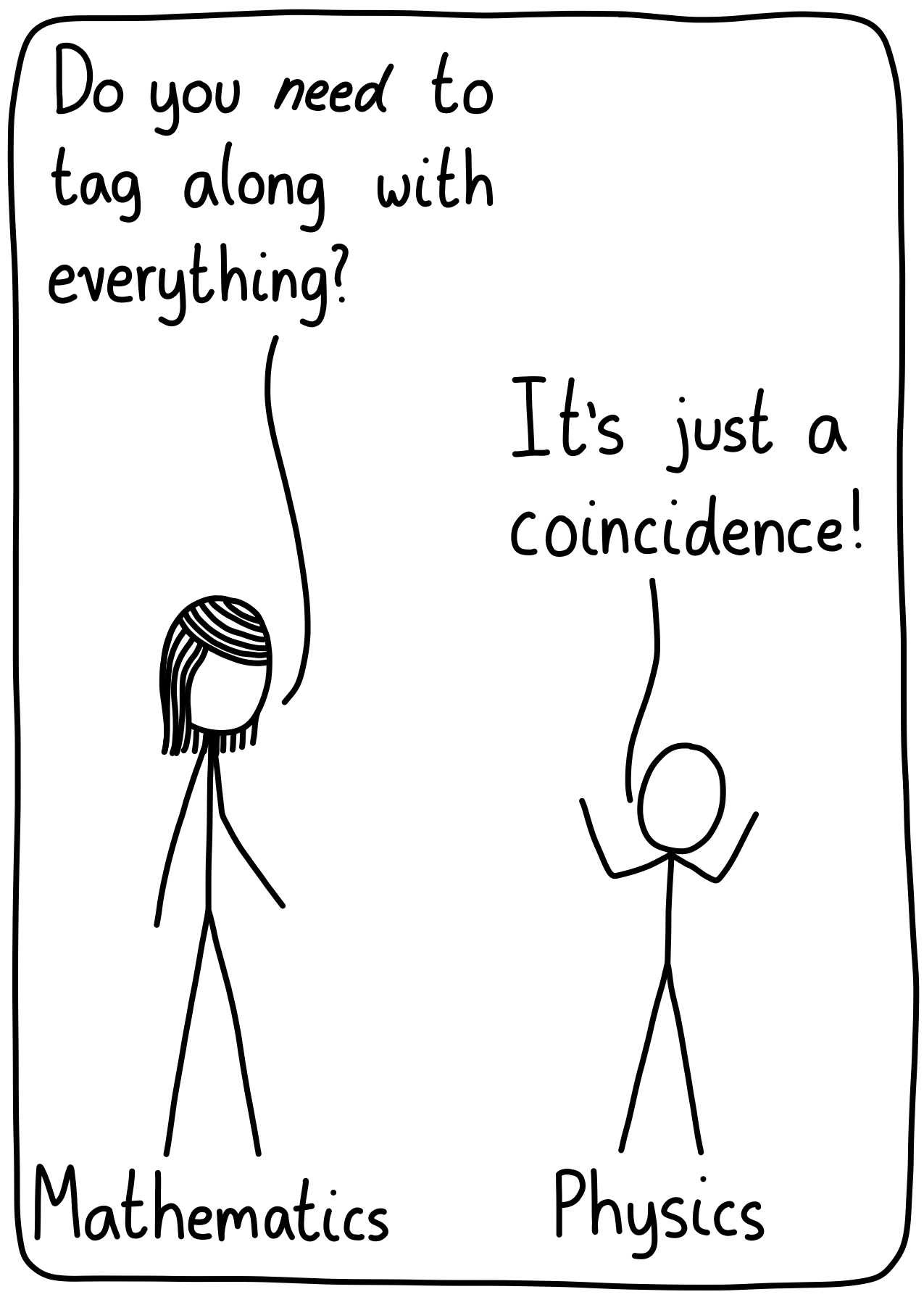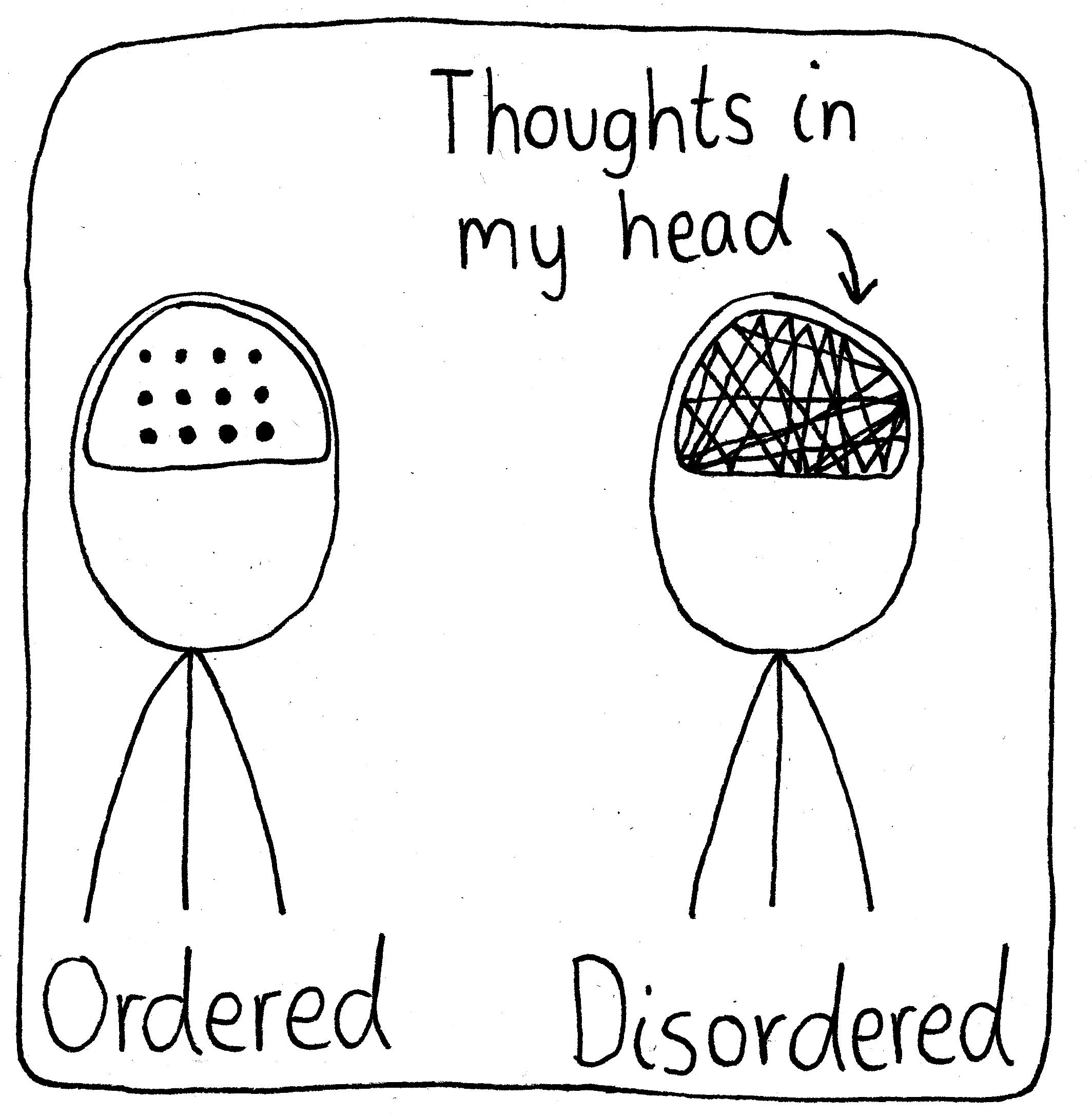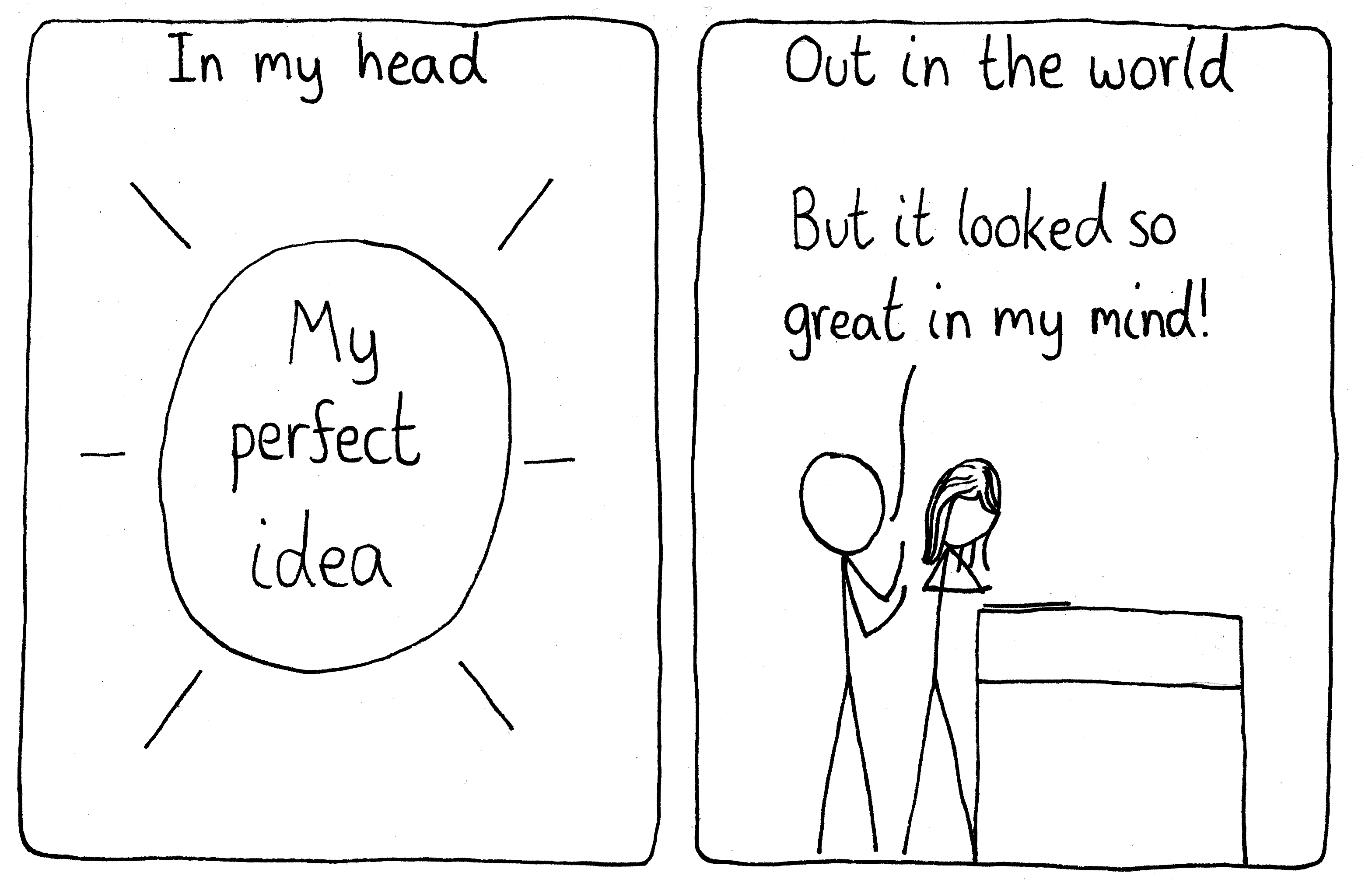 Comics about mathematics, science, and the student life.
Comics about mathematics, science, and the student life.
Figure Density

“I know what we can do. We can split up the figure!”
“Yeah, that’s a great idea. Now, each figure can tell its own story–”
“We can make an awesome multi-panel figure!”
20 Apr 2022Depth

Are you sure that digging into one topic for so long is a good example of “work-life balance”?
06 Apr 2022Tag Along

“It just so happens that everything you do has applications in the real world!”
04 Apr 2022Motivation

The last panel always makes me think of how my first quantum theory courses began with going the “historical route”.
01 Apr 2022




